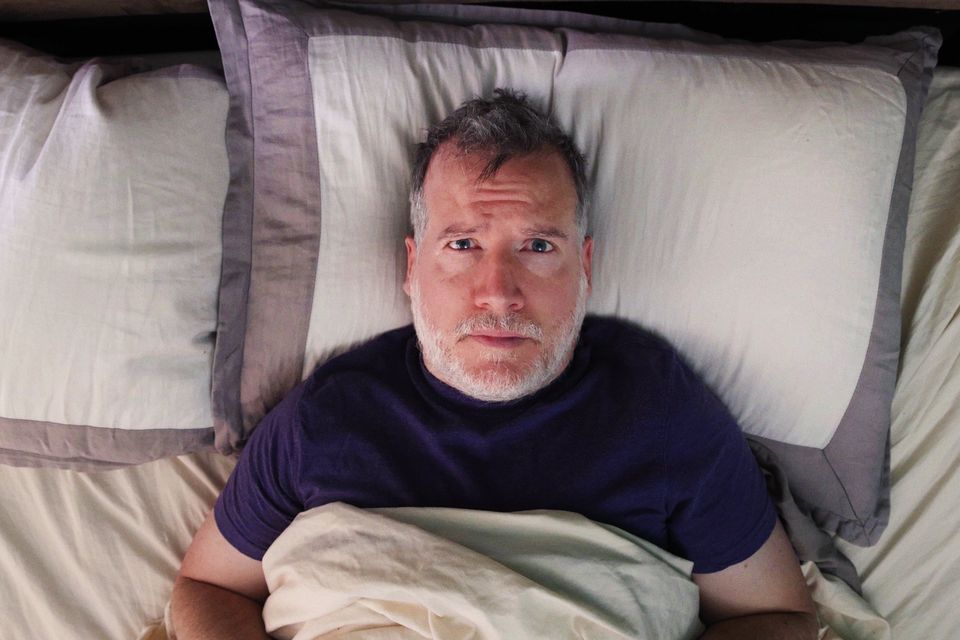Ask the doctor: My husband’s stress is so bad I worry he’ll have a heart attack. Would medication help?
GP Jennifer Grant advises you with your medical queries
There is no magic cure for stress but simple changes can improve heart health. Photo: Getty Images
Question: I am at my wits end with my husband’s inability to manage stress. He refuses to do anything like exercise or meditation. He has always been bad at handling stress but lately, with the cost-of-living crisis and sickness in his elderly parents, it has spiralled, and I’m terrified he will have a heart attack.
Is there anything he could ask his GP for to get him through this period? Please don’t tell me all the behavioural modifications he should try because he won’t. We need a plaster to get us through this time.
Dr Grant replies: I am afraid there is no such thing as a ‘Band-Aid/magic pill’ that will help your husband through this difficult time. You may be alluding to something like Valium (generic name diazepam) also known as the class of drugs called benzodiazepines.
1960s American doctors first prescribed these to ‘reduce tension’ and they quickly became a number one seller in the western world.
We now know there are many downsides to long-term benzodiazepine use, and today they are only prescribed for certain conditions.
Doctor’s prescribing habits for controlled substances (drugs that are subject to abuse) are monitored by country-specific governing bodies around the world.
Moreover, social media is trending towards lifestyle modification instead of giving patients pills for all kinds of early-onset medical disorders. But that change needs to come from within the patient. Unless the patient is highly motivated towards consistent long-term self-improvement, your efforts may be futile. Stress management is multi-factorial.
Instead, I ask you to assess your husband’s lifestyle and see what you (and other family members/friends) can do to reduce his stress for him. No man is an island.
Starting with his diet and weekly alcohol/cigarette intake (if any). One sure way to save money is to stop spending it on alcohol/cigarettes/takeaways etc.
Where can you both make improvements in terms of your diet? Is he sleeping well? He should aim for 7-8 hours of sleep every night and ideally a brisk walk for one hour every day.
Can he reduce his hours at work or delegate more? Can you both decide to spend less money this Christmas? Have all available HSE supports been put in place for his elderly parents? Are there other siblings who can share the burden? It’s more about effective time management and making sure he is using all available resources.
You mentioned your concerns about his risk of heart disease. He obviously needs to attend his GP for a cardiovascular risk assessment. Factors that contribute to his risk include his current level of physical activity, overall fitness, dietary choices, cigarette/alcohol intake, potential use of illicit drugs, current stress levels, and overall quality of sleep.
His body mass index (BMI), percentage body fat, muscle mass, blood pressure and cholesterol profile contribute to his cardiovascular risk assessment. Other things to consider include a strong family history of heart disease (a first-degree relative under 55 years old with heart attack) will adversely affect his risk.
Patients with multiple risk factors such as diabetes, metabolic or kidney disease, current heavy smoking, morbid obesity, familial high cholesterol or poorly controlled hypertension should consider screening.
During a shared decision-making process, patients with a higher baseline risk often proceed directly to a heart scan called a CT coronary angiogram. This provides a look at the anatomy of the blood vessels that supply the heart muscle, to assess for any potential underlying heart disease.
No test is 100pc definitive but under the guidance of a cardiologist, you will be directed through the appropriate investigations as indicated.
Other specialised tests like cardiac perfusion MRI scans or invasive formal coronary angiograms are sometimes indicated for further reassurance.
Dr Jennifer Grant is a GP with Beacon HealthCheck


.jpg)










.jpg)

